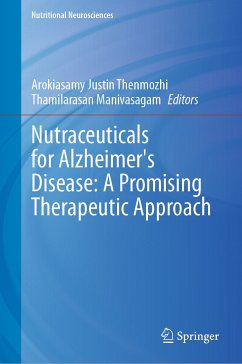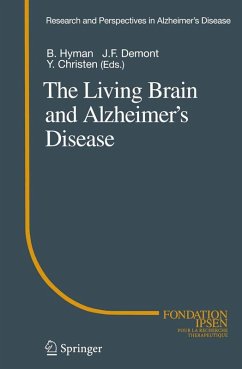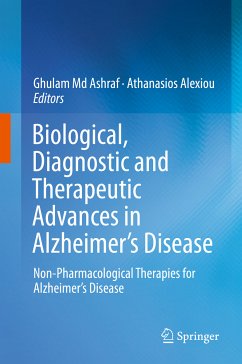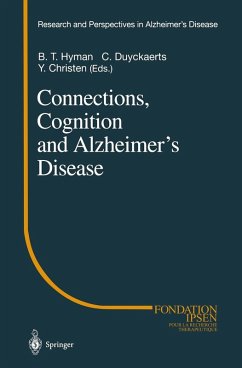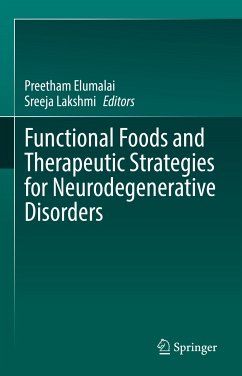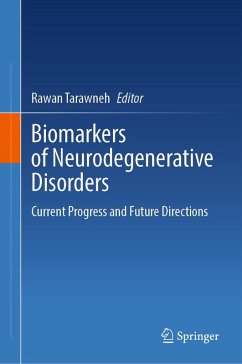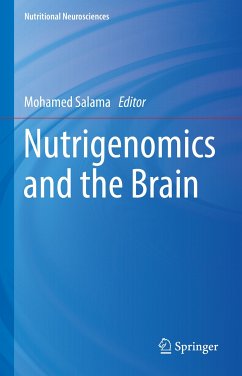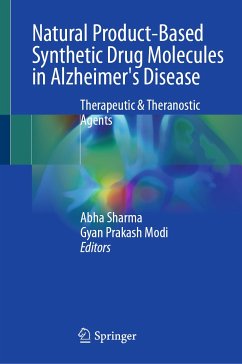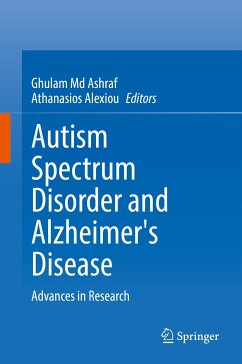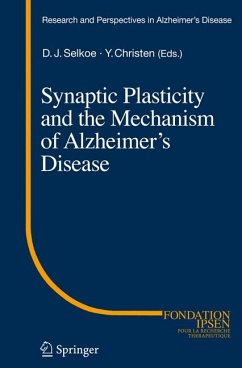
Multi-Factorial Approach as a Therapeutic Strategy for the Management of Alzheimer's Disease (eBook, PDF)
Versandkostenfrei!
Sofort per Download lieferbar
216,95 €
inkl. MwSt.
Weitere Ausgaben:

PAYBACK Punkte
108 °P sammeln!
This book is a comprehensive guide to the pathology, underlying mechanisms, and treatment options for Alzheimer's disease (AD). The book starts with an introduction to the basic anatomy and physiology of the central nervous system, followed by an overview of the types, classifications, and basic concepts of neurodegenerative disorders. The epidemiology, etiology, risk factors, and future predictions of AD have been covered in detail. The book then delves into the pathophysiology and underlying mechanisms of plaque formation and explores the correlation of AD with other psychological and non-ps...
This book is a comprehensive guide to the pathology, underlying mechanisms, and treatment options for Alzheimer's disease (AD). The book starts with an introduction to the basic anatomy and physiology of the central nervous system, followed by an overview of the types, classifications, and basic concepts of neurodegenerative disorders. The epidemiology, etiology, risk factors, and future predictions of AD have been covered in detail. The book then delves into the pathophysiology and underlying mechanisms of plaque formation and explores the correlation of AD with other psychological and non-psychological conditions. The chapters also explore the diagnosis of AD, including types of plaques and their detection, imaging techniques, and other tests. The book also covers traditional therapies for AD and explores the potential application of nanotechnology in AD treatment. The book also covers animal models and ethics in the testing of drugs for AD, regulatory guidelines, and the approval process for drugs and formulations for AD. Prevention and reduction of AD risk are explored, including lifestyle changes, dietary changes, supplements, natural medicines (phytoconstituents), and probiotics as the future of AD. The book concludes with a discussion of future barriers and possible solutions with recent advances in the field of AD. This book is an essential guide for students, researchers, and healthcare professionals interested in Alzheimer's disease research.
Dieser Download kann aus rechtlichen Gründen nur mit Rechnungsadresse in A, B, BG, CY, CZ, D, DK, EW, E, FIN, F, GR, HR, H, IRL, I, LT, L, LR, M, NL, PL, P, R, S, SLO, SK ausgeliefert werden.



